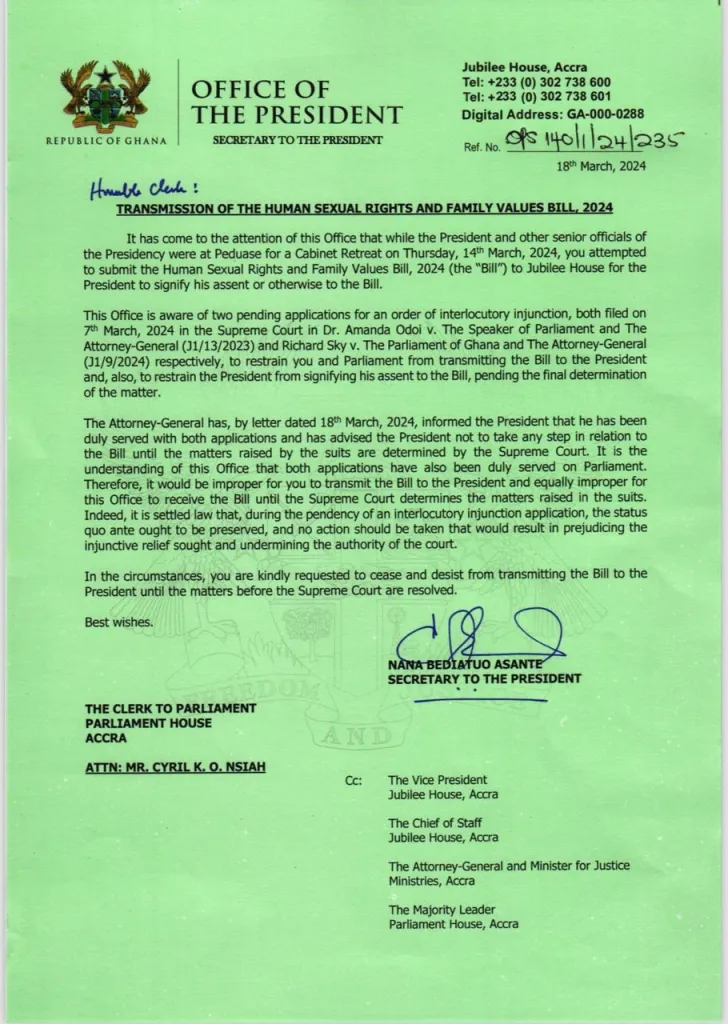
The executive President of Ghana, Nana Addo Dankwa Akuffo, lacks the authority to dictate to the legislature regarding its constitutional duty not to forward the LGBTQ+ bill to the presidency. The power to direct does not extend to the President’s authority to veto the bill, and any attempt to influence this process through allusions to ongoing Supreme Court cases is baseless.
Constitutionally, there is no legislation concerning LGBTQ+ rights yet. Therefore, the President’s actions, seemingly aligned with the interests of LGBTQ+ minorities, are misleading. Hon. Kofi Adams, Member of Parliament for Beum, made these observations during an interview on the political talk show Simpieso on Ahotor 92.3 FM, hosted by Emmanuel Amartey (Alaska De Don).
The President’s directive to Parliament not to forward the LGBTQ+ bill for his assent gives the impression that he is acting as the spokesperson for the Supreme Court and advocating for LGBTQ+ interests in the country. However, Parliament represents the supreme interests of the nation, and the President cannot prioritize his personal views over his constitutional duties to either assent or reject the bill.

Globally, there are various health-related challenges associated with LGBTQ+ groups, including depression, anxiety, suicide, HIV/AIDS, other sexually transmitted infections, eating disorders, body image issues, and substance abuse. Approximately 10% of the population identifies as lesbian, gay, bisexual, or transgender (LGBT), and these individuals often face healthcare risks due to lack of awareness about their sexual orientation, ignorance of specific health needs, or fear of discrimination from healthcare providers.
Limited information is available on healthcare risks within the LGBTQ+ population, primarily due to fear of stigmatization and reluctance to disclose sexual orientation. Many individuals avoid seeking healthcare due to negative past experiences or assumptions made by healthcare professionals. As a result, a significant percentage of physicians fail to inquire about patients’ sexual orientation, contributing to inadequate healthcare provision for LGBTQ+ individuals.
It is imperative for healthcare professionals to create an inclusive and non-judgmental environment to address the specific health needs of LGBTQ+ individuals effectively.




